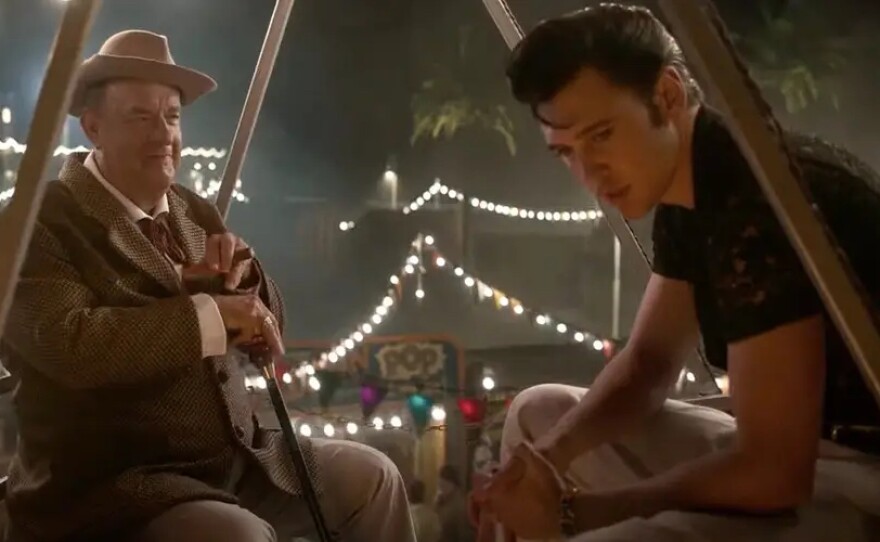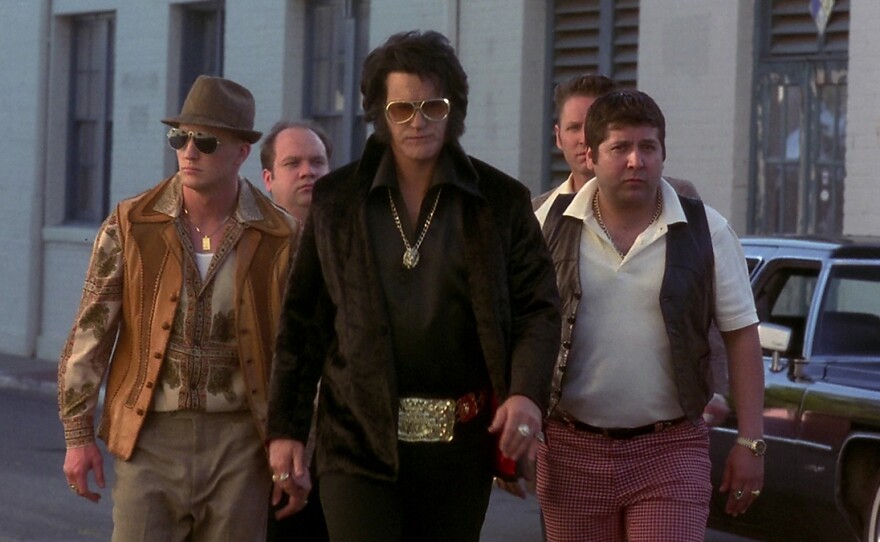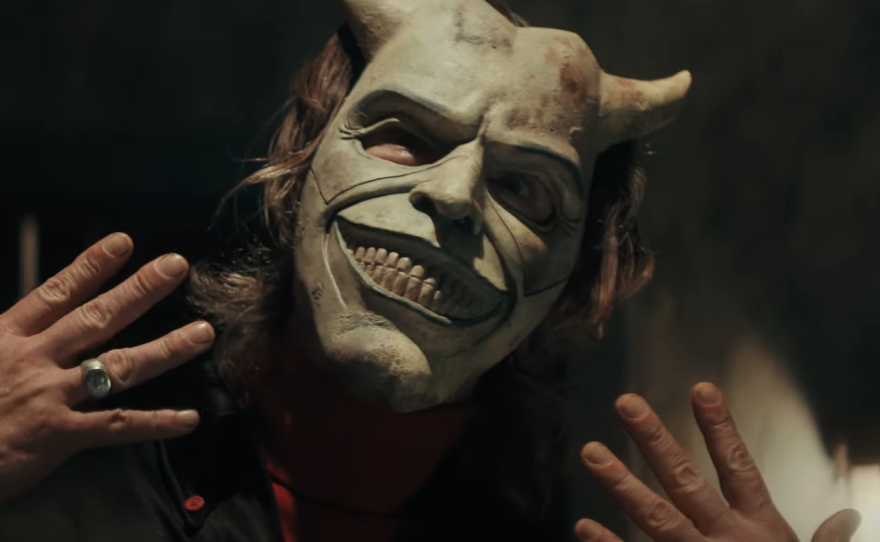This weekend audiences can choose between Baz Luhrmann's "Elvis" or Ethan Hawke in the horror film "The Black Phone."
'Elvis'
Baz Luhrmann, the filmmaker who reimagined movie musicals with both "Strictly Ballroom" and "Moulin Rouge," directs his attention to the life of Elvis Presley for his latest film. But don't let the title "Elvis" fool you, it is not really just about Elvis.
"Elvis" is by no means a conventional biopic of Elvis Presley. It is not about facts or a chronology of events and it is not even told from his point of view. Luhrmann chooses to have Presley's con man of a manager, Colonel Tom Parker (played by Tom Hanks in a fat suit), tell the story. So it is a portrait of Elvis (played and mostly sung by Austin Butler) once removed and told by someone with personal reason to skew events.
But that is just the kind of warped perspective that inspires Luhrmann. It is a perspective that allows Luhrmann to also offer up a portrait of America and showbiz as a kind of sidebar.

Parker tells us early on, "There are some who would make me out to be the villain of this here story." And he is. I never knew much about Presley's personal life and I was shocked to discover how controlling and abusive Parker was (if we are to accept the film's depiction of him, which does seem to be based in facts). He is the villain, but he is also the person who helped launch Presley's career and who recognized the potential Presley had.
Luhrmann's film is about capturing the essence of Elvis through evocative and impressionistic flurries. The first half of the film boldly and breathlessly shows how Presley burst on the music scene and shook, rattled and rolled his way into stardom. We share Parker's excitement at seeing Presley unleash his talent on an unsuspecting audience and then later defy authorities during a concert where he was forbidden to wiggle even a finger.

These early scenes recall the heady rush of "Moulin Rouge" and sweep us up in the frenzy of teenage hysteria over this new rock and roll sex symbol. Luhrmann sometimes overcuts his material and is a bit too amped up, but much of Presley's early rise is depicted with an energy and bravado that reflects the singer.
But as the film moves to Vegas, Parker takes more screen time and Presley starts to fall into a routine and the film slows down. Plus Parker's manipulative control of Presley makes the second half of the film hard to watch and impossible to enjoy as Presley is held captive in Vegas by Parker’s contracts and gambling debt.
Hanks, with an annoyingly inconsistent accent, grows wearisome as Parker, but Butler’s Elvis is a spellbinding creation that you can’t take your eyes off of. He gives us the rebel, the bad boy and the icon, but also glimpses of the artist and the man. It is an uncanny embodiment of Elvis. But ultimately, as with all of Luhrmann’s films, it’s all about style. The first half of the film burns with a visual intensity that’s as irresistible as Elvis was. But then we have to suffer through the second half.

Seeing how Presley was trapped by Parker makes the film "Bubba Ho-Tep" an even greater film and companion viewing for Luhrmann's movie. In "Bubba Ho-Tep," Elvis walks away from his fame and career and lets an Elvis impersonator take his place. If you pair that film with this "Elvis," it all makes sense and Colonel Parker is a far more evil monster to face than the soul sucking mummy of "Bubba Ho-Tep." I suggest watching the two together.

'The Black Phone'
Actor Ethan Hawke and director Scott Derrickson have a good thing going. In 2012 they partnered on "Sinister," another supernatural horror film, and now they deliver "The Black Phone," and both are solid horror entries.
In "Sinister," Hawke was the victim of horrific happenings, in "The Black Phone" he perpetrates them.
The film, based on a Joe King short story of the same name, is set in 1978 as a serial child abductor nicknamed The Grabber (Ethan Hawke) is prowling the streets of a Denver suburb. Finney (Mason Thames) and Gwen (Madeleine McGraw) are fully aware of The Grabber, but they face their own horrors at the hands of an abusive father at home and bullies at school. Finney is abducted one day by The Grabber, who hides him in a soundproofed basement. There is also a black phone in the basement that The Grabber says never worked, but Finney starts to get calls from past victims who not only want Finney to escape, but also want to get revenge.
The film boasts top notch acting not just from Hawke, but from the youthful cast. It is well paced and smartly scripted. This is a film where the cops actually do their jobs and people don't behave like idiots (except for one character who is meant to be a buffoon). And it builds tension well.
One of the refreshing things about the film is that it does not create tension by exploiting its young victims. And the film takes time to give some depth and layers to who the victims are. We get to take a moment to feel a sense of loss over their deaths, that's not what horror films tend to do. Victims like this can be treated as disposable characters existing only for a shock kill.
"The Black Phone" is not a great horror film, but it is a well crafted one that does not insult your intelligence. It does not aim high, but it hits its mark to deliver a compelling and disturbing tale. And The Grabber is only one of the terrifying things in the movie.






